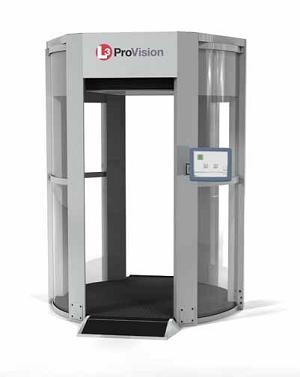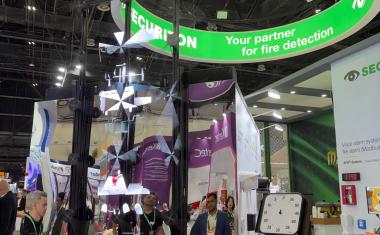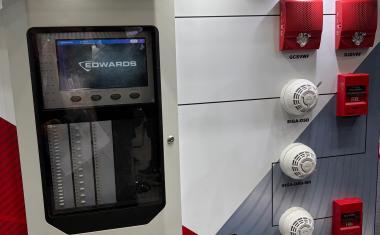Contract for Checkpoint Screening System
L-3 Communicationswas awarded a $164.7 million indefinite delivery/indefinite quantity (ID/IQ) contract by the US Transportation Security Administration (TSA) to supply the agency ...

L-3 Communications was awarded a $164.7 million indefinite delivery/indefinite quantity (ID/IQ) contract by the US Transportation Security Administration (TSA) to supply the agency with millimeter wave advanced imaging technology systems to screen for explosives and other threats at security checkpoints. This contract vehicle makes L-3 eligible for future delivery orders for its ProVision system.
"TSA's award of this contract follows the recent designation of ProVision as a qualified checkpoint screening system," said Thomas M. Ripp, president of L-3 Security & Detection Systems. "In use at U.S. airports since 2007, our ProVision millimeter wave system offers an effective, efficient and safe screening technology." The technology used in the ProVision system utilizes safe, harmless radio waves to detect threats which may be hidden under a passenger's clothing. Threat substances made from a wide variety of materials can be found with the ProVision, including both metallic and non-metallic threat items.
Mr. Ripp continued, "L-3 is currently testing software upgrades and continues to enhance L-3's checkpoint screening technology to detect an even broader range of potential aviation threats." L-3's ProVision offers multiple levels of privacy protection that can be customized to support customer-specific operational procedures. Security analysts see a 3-D black and white silhouette that makes it virtually impossible to determine the identity of the scanned individual. Also, images are viewed in remote locations separate from the checkpoint, so that analysts cannot see the passenger being scanned. Privacy is further ensured with options that allow for blurring of facial features.
More than 200 ProVision systems are deployed worldwide to protect critical airports and other facilities, including federal and state courthouses, correctional institutions, embassies and border crossings.














